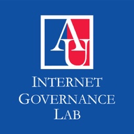Dr. Isabelle Zaugg received her PhD from American University's School of Communication in 2017.
American University SOC Ph.D. student Dr. Isabelle Zaugg successfully defended her dissertation on Wednesday titled “Digitizing Ethiopic: Coding for Linguistic Continuity in the Face of Digital Extinction.” Drawing on field work conducted in Ethiopia last year as part of a Fulbright-Hays Doctoral Dissertation Research Abroad Fellowship, Dr. Zaugg’s project investigates the relationship between the growth of information communication technologies and rapid declines in language diversity.
Abstract: Despite the growing sophistication of digital technologies, it appears they are contributing to language extinction on a par with devastating losses in biodiversity. With language extinction comes loss of identity, inter-generational cohesion, culture, and a global wealth of knowledge to address future problems facing humanity. Linguists estimate a 50%-90% loss of language diversity during the 21st century, with the lack of digital support for minority languages and scripts a contributing factor.
Over time, digital design has come to support an increasing number of languages, but this process has been largely market-driven, excluding languages of communities too small or poor to represent viable markets. Lack of support for a language in the digital sphere means that language communities begin using other more dominant or “prestigious’ languages for digital communication. This results in “digital extinction,” including the impossibility of raising youth fluent in their mother-tongue. Once the youth in a community have stopped using a language, it is typically on the path to extinction within the next few generations.
This research investigates the role of digital design and governance in including or excluding languages from the digital sphere through the instrumental case study of Ethiopic, a script that supports a number of languages at risk of digital extinction, including the national language of Ethiopia. Using qualitative and quantitative methods, the dissertation investigates late 20th century efforts to include the Ethiopic script in Unicode-ISO/IEC 10646, the dominant digital sister standards that allow scripts of the world to appear on devices, websites, and software, as well as the ongoing challenges Ethiopic-based languages face for full digital viability in the 21st century.
Concluding with policy recommendations and best practices for digital design, governance, and advocacy efforts to preserve language diversity, this research sheds light on far-reaching implications for the public good of digital design and governance. The decisions we make about digital technologies will impact generations to come, and this dissertation asks, “Are we coding for the future we want?”
Please join us in congratulating Dr. Zaugg on her defense and wishing her well as she begins a Mellon-Sawyer Seminar Postdoctoral Fellowship in “Global Language Justice” at the Institute for Comparative Literature and Society at Columbia University in the Fall.

